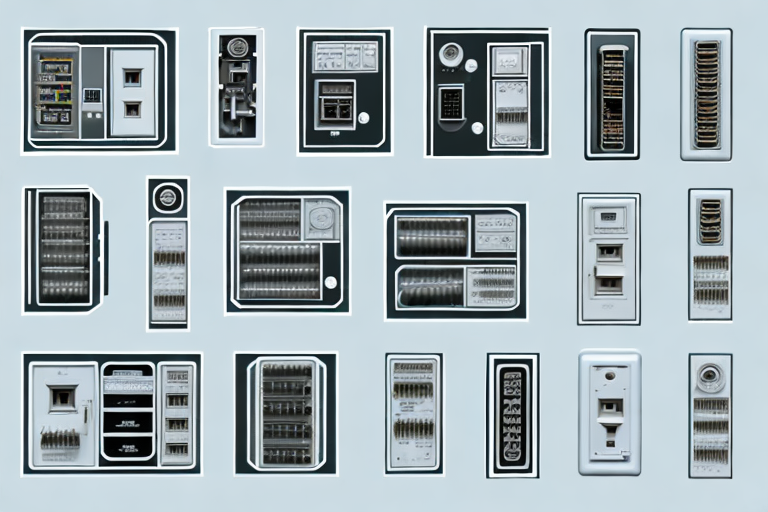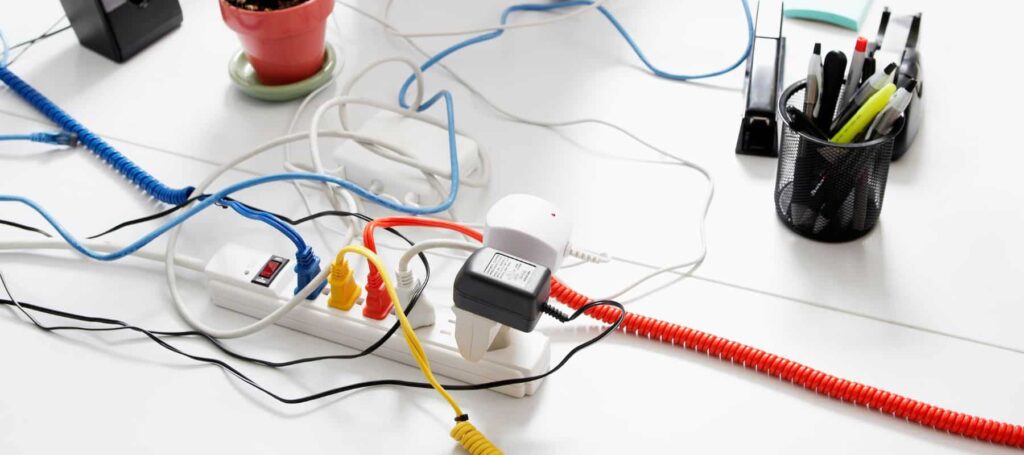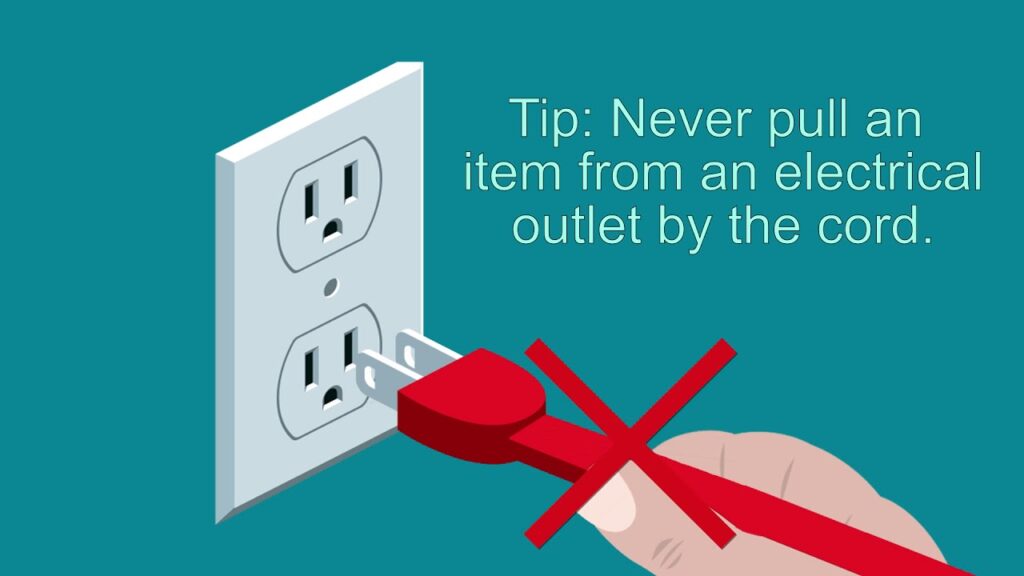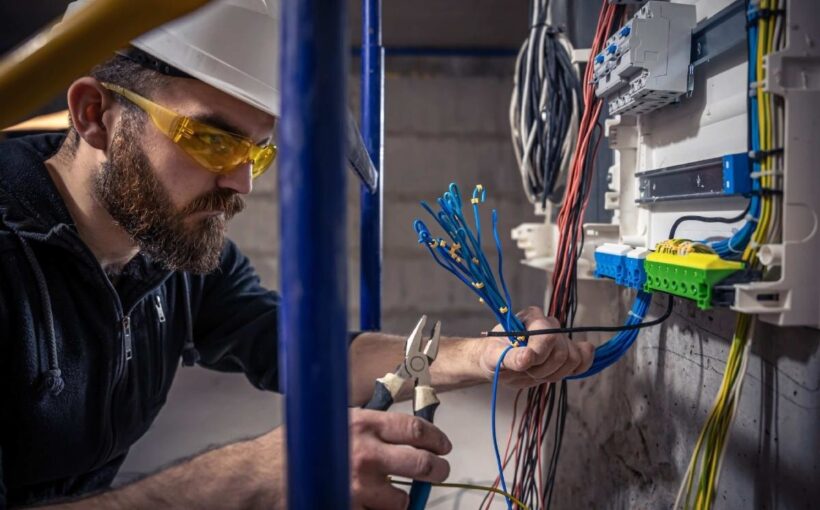Electrical safety should always be a top priority when working with electrical supplies. Understanding the risks associated with improper handling and the role of safety measures in preventing accidents is crucial. Here are some essential safety tips for handling and storing electrical supplies to minimize the risk of electrical hazards.
Understanding the Importance of Electrical Safety
Electrical hazards can result in severe injuries, electrocution, and even fatalities. Mishandling electrical supplies can lead to electrical fires, shocks, and burns. It is essential to recognize the potential risks associated with improper handling.
When it comes to electrical safety, knowledge is power. Understanding the dangers involved in mishandling electrical supplies is the first step towards preventing accidents. By being aware of the risks, individuals can take appropriate precautions to ensure their safety and the safety of those around them.
One of the primary risks associated with improper handling of electrical supplies is the possibility of electrical shocks. When wires or equipment are mishandled, it can create a pathway for electricity to flow through the body, resulting in a potentially fatal shock. This is why it is crucial to handle electrical supplies with care and always follow proper safety procedures.
See Also: Conduit Fittings in Hazardous Locations

Risks Associated with Improper Handling of Electrical Supplies
Mishandling electrical supplies, such as wires, cables, and equipment, can result in electrical shocks, short circuits, and fires. Exposed wires or improper grounding can increase the risk of electrocution. It is crucial to understand the dangers involved and take appropriate precautions.
Short circuits are another common risk associated with mishandling electrical supplies. When the flow of electricity is interrupted or diverted due to faulty wiring or damaged equipment, it can lead to a short circuit. This can cause electrical fires, damage to appliances, and even pose a threat to the safety of individuals nearby.
Furthermore, improper grounding of electrical equipment can significantly increase the risk of electrocution. Grounding ensures that any excess electrical energy is safely directed into the ground, preventing it from flowing through a person’s body. Failing to properly ground electrical supplies can result in severe injuries or even death.
The Role of Safety Measures in Preventing Electrical Accidents
Implementing safety measures is vital for preventing electrical accidents. These measures include proper insulation of wires, regular maintenance and inspection of electrical supplies, grounding equipment, and using personal protective equipment (PPE) when working with electricity. Adhering to safety guidelines can significantly reduce the risk of accidents.
Proper insulation of wires is crucial to prevent electrical shocks and fires. Insulation acts as a barrier, preventing the flow of electricity from coming into contact with conductive materials or individuals. Regular maintenance and inspection of electrical supplies ensure that any potential issues are identified and addressed promptly, reducing the risk of accidents.
Grounding equipment is another essential safety measure. By providing a safe pathway for excess electrical energy to dissipate into the ground, grounding protects individuals from the dangers of electrical shocks. It is important to ensure that all electrical equipment is properly grounded to maintain a safe working environment.
Lastly, using personal protective equipment (PPE) is essential when working with electricity. PPE, such as insulated gloves, safety glasses, and flame-resistant clothing, provides an additional layer of protection against electrical hazards. Wearing the appropriate PPE can significantly reduce the risk of injuries and ensure the safety of individuals working with or around electrical supplies.
Essential Safety Tips for Handling Electrical Supplies
When working with electrical supplies, it is crucial to prioritize safety to prevent accidents and ensure a secure working environment. By following these safety tips, you can minimize the risk of electrical hazards:
Safe Handling of Electrical Wires and Cables
Electrical wires and cables carry the power needed to operate various devices and systems. To handle them safely:
- Always use insulated tools when handling wires to protect yourself from electric shock.
- Avoid yanking or pulling on the wires, as this can damage the insulation and expose live wires.
- Ensure proper insulation and grounding to prevent electrical leakage and potential short circuits.
- Do not overload electrical circuits, as this can lead to overheating and fire hazards.
- Label all wires and cables for easy identification, reducing the chances of confusion and accidental damage.
Precautions When Working with Electrical Panels
Electrical panels are critical components that distribute electricity throughout a building. To work safely with electrical panels:
- Always turn off the power before working on the electrical panel to avoid electric shock.
- Use a voltage tester to ensure no electricity is flowing through the panel before starting any work.
- Avoid touching electrical components with bare hands, as this can result in electric shock or burns.
- Do not force anything or use excessive force when operating the panel, as it can damage the components or cause malfunctions.
- Always follow the manufacturer’s instructions and guidelines to ensure proper handling and maintenance.
Safety Measures for Handling Electrical Tools and Equipment
Electrical tools and equipment are essential for various electrical tasks. To ensure your safety while using them:
- Inspect tools and equipment for any damage before usage. Damaged tools can pose a risk of electric shock or malfunction.
- Use tools with insulated handles to provide an extra layer of protection against electric shock.
- Keep tools and equipment away from water or damp areas to avoid the risk of electric shock.
- Unplug tools when not in use to prevent accidental activation or the risk of electric shock.
- Store tools and equipment properly in designated areas to prevent damage and ensure easy accessibility.
Remember, electrical safety should always be a top priority when working with electrical supplies. By following these safety tips and being aware of potential hazards, you can create a safer working environment and protect yourself and others from electrical accidents.
Proper Storage Techniques for Electrical Supplies
Proper storage of electrical supplies is essential to maintain their quality and avoid accidents. Consider the following techniques:
Organizing Electrical Supplies for Safe Storage
Sorting electrical supplies based on their type and purpose is crucial for efficient storage. By using labeled containers and shelves, you can keep your supplies organized and easily accessible. It is also important to store frequently used items in a convenient location, ensuring that they are within reach whenever needed. Additionally, it is advisable to store potentially hazardous materials separately, reducing the risk of accidents or chemical reactions.

Ideal Conditions for Storing Electrical Items
Creating the ideal storage conditions for electrical items is vital to preserve their functionality and longevity. Here are some key factors to consider:
Temperature:
It is recommended to store electrical supplies in a cool environment, as high temperatures can negatively impact their performance. Extreme heat can cause components to degrade or malfunction, leading to potential safety hazards.
Humidity:
Avoid storing electrical supplies in areas with high humidity levels, as moisture can corrode metal components and compromise their integrity. Excessive moisture can also lead to short circuits or electrical malfunctions.
Sunlight and Heat:
Protect electrical supplies from direct sunlight and exposure to heat sources. Prolonged exposure to sunlight can cause materials to deteriorate, while direct heat can affect the performance of sensitive components.
Ventilation:
Adequate ventilation is crucial to prevent the buildup of heat and humidity. Ensure that the storage area is well-ventilated to maintain a stable environment for your electrical supplies.
Flammable Substances:
Keep electrical supplies away from flammable substances to minimize the risk of fire. Storing them in a separate area or cabinet can help prevent accidental ignition.
Safety Precautions for Storing Batteries and Other Power Sources
When it comes to storing batteries and other power sources, it is important to follow specific safety precautions. Consider the following guidelines:
- Temperature and Humidity: Similar to other electrical supplies, batteries should be stored in a cool and dry place. Extreme temperatures and humidity can affect their performance and potentially cause leakage or damage.
- Metal Objects: Prevent batteries from coming into contact with metal objects, as this can lead to short circuits or other electrical issues. Store them in non-conductive containers or use protective covers to avoid accidental contact.
- Proper Disposal: Dispose of damaged or leaking batteries in accordance with local regulations. Improper disposal can harm the environment and pose risks to human health. Look for designated recycling centers or battery disposal programs in your area.
- Children and Pets: Keep batteries out of reach of children and pets, as they may accidentally swallow or misuse them. Store them in secure locations or use childproof containers to prevent any potential harm.
- Appropriate Containers: Use appropriate containers specifically designed for battery storage. These containers are often designed to prevent accidental contact, leakage, or short circuits, ensuring the safety of both the batteries and the surrounding environment.
By implementing these proper storage techniques, you can maintain the quality and safety of your electrical supplies, ensuring they are always ready for use when needed.

Regular Maintenance and Inspection of Electrical Supplies
Regular maintenance and inspection of electrical supplies are essential for safety and longevity. It is crucial to ensure that all electrical equipment is functioning properly and free from any potential hazards.
When it comes to electrical supplies, regular inspections play a vital role in identifying potential issues or damages early on. This allows for timely repairs and replacements, reducing the risk of accidents. Inspections can help detect problems such as loose connections, worn-out wires, or faulty components.
During inspections, it is important to check for any signs of wear and tear, such as frayed wires, damaged insulation, or overheating. These issues can lead to electrical malfunctions, short circuits, or even electrical fires. By catching these problems early on, you can prevent further damage and ensure the safety of your electrical system.
Importance of Regular Inspection
Regular inspections are not just about safety; they also contribute to the overall efficiency and performance of electrical supplies. When electrical equipment is well-maintained and regularly inspected, it operates at its optimal level, resulting in improved energy efficiency and reduced energy consumption.
Additionally, regular inspections help identify any potential energy wastage or inefficiencies in the electrical system. By detecting and rectifying these issues, you can save on energy costs and reduce your environmental footprint.
Moreover, inspections provide an opportunity to assess the compatibility of electrical supplies with the evolving needs of your space. As technology advances and electrical demands change, it is essential to ensure that your electrical supplies can meet these requirements. Regular inspections allow you to identify any necessary upgrades or modifications to keep up with the demands of your electrical system.
Maintenance Tips for Prolonging the Life of Electrical Supplies
Proper maintenance can significantly extend the life of electrical supplies. Here are some essential tips to keep in mind:
- Clean equipment regularly: Dust and debris can accumulate on electrical equipment, affecting its performance and potentially causing overheating. Regularly clean your electrical supplies using appropriate cleaning methods and tools.
- Handle with care: Electrical supplies are delicate and sensitive. Avoid rough handling, excessive force, or dropping them, as this can lead to internal damage or component failure.
- Follow manufacturer-recommended maintenance procedures: Each electrical supply comes with specific maintenance guidelines from the manufacturer. It is crucial to follow these instructions to ensure proper care and avoid voiding any warranties.
- Check for signs of wear and tear: Regularly inspect your electrical supplies for any signs of wear and tear, such as frayed wires, loose connections, or damaged insulation. Address these issues promptly to prevent further damage or safety hazards.
- Keep the environment clean and dry: Moisture and humidity can damage electrical supplies. Ensure that the area where your electrical equipment is located is clean, dry, and properly ventilated.
By following these maintenance tips, you can prolong the life of your electrical supplies, reduce the risk of malfunctions or accidents, and ensure the safety and efficiency of your electrical system.
Training and Education for Electrical Safety
Proper training and education on electrical safety are essential for everyone working with electrical supplies.
Importance of Training in Electrical Safety
Training helps individuals understand the risks, safety protocols, and emergency procedures related to electrical work. It enables them to make informed decisions and handle electrical supplies safely.
Resources for Further Education on Electrical Safety
There are numerous resources available for further education on electrical safety, including online courses, safety organizations, and training programs. These resources provide comprehensive knowledge and guidance for maintaining electrical safety standards.
Conclusion
Proper handling and storage techniques play a vital role in ensuring electrical safety. By understanding the risks and following the recommended safety tips, individuals can minimize the chances of accidents and maintain the integrity of electrical supplies. Regular maintenance, continuous education, and adherence to safety guidelines can create a safer working environment when dealing with electrical supplies.
